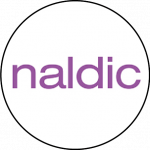 On Wednesday 28th April 2021 we hosted the final webinar in our ‘Inviting the Experts…’ series. This is a series of CPD sessions which we have set up recognising the incredible work that is going on in schools right now in particularly challenging circumstances and the need for school staff to have access to informative, practical advice from experts.
On Wednesday 28th April 2021 we hosted the final webinar in our ‘Inviting the Experts…’ series. This is a series of CPD sessions which we have set up recognising the incredible work that is going on in schools right now in particularly challenging circumstances and the need for school staff to have access to informative, practical advice from experts.
 The session was delivered by Catharine Driver, an independent consultant and trainer for EAL with over 30 years’ experience teaching pupils with English as an additional language, speaking on behalf of NALDIC. This was an fascinating and informative introduction to the issues children and young people with EAL face, and the practical support that schools can provide. Here are some overview notes from the session:
The session was delivered by Catharine Driver, an independent consultant and trainer for EAL with over 30 years’ experience teaching pupils with English as an additional language, speaking on behalf of NALDIC. This was an fascinating and informative introduction to the issues children and young people with EAL face, and the practical support that schools can provide. Here are some overview notes from the session:
- The government definition of an EAL learner includes anyone who has been exposed to a language other than English during early childhood “and continues to be exposed to this language in the home or in the community”.
- In England, over 1.5 million school children use another language at home which, on average, is:
- 21.3% of pupils in state-maintained primary schools
- 17.1% of pupils in state-maintained secondary schools
- 14.8% of pupils in special schools
- EAL in National Curriculum 2014:
- “The ability of pupils for whom English is an additional language to take part in the national curriculum may be in advance of their communication skills in English. Teachers should plan teaching opportunities to help pupils develop their English and should aim to provide the support pupils need to take part in all subjects.”
- “It is particularly important to induct pupils into the language which defines each subject in its own right, such as accurate mathematical and scientific language.”
- Useful acronyms:
- EAL: English as an Additional Language
- ESOL: English for Speakers of Other Languages
- ESL: English as a Second Language
- EFL: English as a Foreign Language
- L1: First language
- L2: Second language
Children with EAL come from varying backgrounds so don’t make assumptions about their backgrounds. They may be:
- Refugee and Asylum seekers (e.g. from Syria, Iraq, Afghanistan)
- Children of diplomats and international students
- Travellers, Gypsy, Roma (from various countries)
- Indigenous mobile students:
- Who may have been excluded or bullied elsewhere
- Who may have additional needs
Schools should undertake an admissions checklist to find out about the pupil’s needs, and have a plan to disseminate necessary information through the school to ensure the pupil gets appropriate support.
There are some common perceptions of EAL learners. Are they true or false?
- Bilingual children are likely to have a greater awareness of grammar than monolingual pupils: TRUE
- After two years most pupils will have developed basic spoken fluency in English: TRUE but it depends on the age of the child and confidence levels will vary
- It’s difficult for EAL pupils to transfer their previous knowledge into the English context: FALSE but their experience of prior education and school systems is highly significant
- EAL learners can make progress using simplified materials and tasks: TRUE however older or more able EAL learners do not necessarily need simplified materials as their understanding of subject concepts may be very advanced…
- Adopt a ‘can do’ assessment approach when reviewing:
- previous education
- speaking, reading and writing skills in both L1 and L2
- vocabulary knowledge (e.g. BPVS, 1000 words)
- mathematical ability
- ability to think, reason and express themselves in complex language in the mother tongue
- Use the BELL Foundation EAL Assessment Framework (for primary and for secondary)
- Beware of reading tests which can be misleading and often assume local cultural knowledge
- Use bilingual books and sit and read with them, inviting them to speak in their own language whilst you speak in English
- The stages of English proficiency are as follows:
- New to English
- Early Acquisition
- Developing Competence
- Competent
- Fluent
Need to move students from Basic Interpersonal Communicative Skills (BICS):
- Which take 1-2 years to acquire
- Refers to the ‘here and now’ language, mostly oral
- Is ‘context embedded’ and relies on gestures, eye contact, visual clues
- Can lead people into overestimating students’ language skills
To Cognitive and Academic Language Proficiency (CALP)
- Which takes 5-7 years to learn
- Refers to Academic language – passive voice, ideas and concepts as agents, metaphor, personification and nominalization
- Is more specialist, technical or scientific vocabulary with Greek or Latin roots
- Is ‘context reduced’ as it is mainly reading and writing
Via ‘Quality first teaching and learning’ which:
- Pupil prior knowledge
- Curriculum content
- Language development needs: EAL specialist work
Planning lessons for EAL learners:
- Activate prior knowledge – can use first language to support understanding
- Encourage talk and peer collaboration – pair work or group work (assigning group roles)
- Pay attention to form, function and language choices – understanding vocabulary and grammar
- Scaffold reading and writing – for example using substitution tables
- Develop vocabulary by:
- Hearing, saying, noticing, reading, learning, reviewing, practising, writing
- Giving a word and definition is not enough
- Repetition (up to 10 times) is important – practise using it and explaining it and improve confidence
- Continuous use!
- Talk to English beginners every day, smile at them, encourage them to speak, invite them to join in / hand out books, teach them how to say ‘I don’t understand’ and ‘Can you help?’ but don’t worry if they don’t speak much at first as listening is also learning
- For written work: label items, list key words, use a bilingual dictionary, sequence cut up words or sentence to form continuous writing, use substitution tables
 We are very grateful to our supporters Towergate and The Education Broker, whose support enables us to provide these sessions for free, and who are committed to improving the health and wellbeing of young people and staff in the education sector. Please visit their websites to learn more about what they do or call on 01438 739626 to discuss your insurance, risk management and health and wellbeing requirements.
We are very grateful to our supporters Towergate and The Education Broker, whose support enables us to provide these sessions for free, and who are committed to improving the health and wellbeing of young people and staff in the education sector. Please visit their websites to learn more about what they do or call on 01438 739626 to discuss your insurance, risk management and health and wellbeing requirements.
Not a Hub Member? Find out about the benefits of membership.
 On Wednesday 28th April 2021 we hosted the final webinar in our ‘Inviting the Experts…’ series. This is a series of CPD sessions which we have set up recognising the incredible work that is going on in schools right now in particularly challenging circumstances and the need for school staff to have access to informative, practical advice from experts.
On Wednesday 28th April 2021 we hosted the final webinar in our ‘Inviting the Experts…’ series. This is a series of CPD sessions which we have set up recognising the incredible work that is going on in schools right now in particularly challenging circumstances and the need for school staff to have access to informative, practical advice from experts. The session was delivered by Catharine Driver, an independent consultant and trainer for EAL with over 30 years’ experience teaching pupils with English as an additional language, speaking on behalf of NALDIC. This was an fascinating and informative introduction to the issues children and young people with EAL face, and the practical support that schools can provide. Here are some overview notes from the session:
The session was delivered by Catharine Driver, an independent consultant and trainer for EAL with over 30 years’ experience teaching pupils with English as an additional language, speaking on behalf of NALDIC. This was an fascinating and informative introduction to the issues children and young people with EAL face, and the practical support that schools can provide. Here are some overview notes from the session: We are very grateful to our supporters Towergate and The Education Broker, whose support enables us to provide these sessions for free, and who are committed to improving the health and wellbeing of young people and staff in the education sector. Please visit their websites to learn more about what they do or call on 01438 739626 to discuss your insurance, risk management and health and wellbeing requirements.
We are very grateful to our supporters Towergate and The Education Broker, whose support enables us to provide these sessions for free, and who are committed to improving the health and wellbeing of young people and staff in the education sector. Please visit their websites to learn more about what they do or call on 01438 739626 to discuss your insurance, risk management and health and wellbeing requirements.